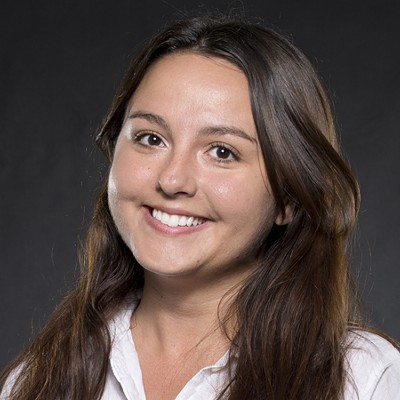Yesterday, Julia Negron had her laptop propped on her bed in Venice, watching the live stream of the Florida House vote on the Infectious Disease Elimination Act, which will create the first needle exchange program in Florida. Last week, it passed the Senate. Yesterday, the bill was brought before the House for its final vote. Negron kept her eyes peeled to her screen — booing at every "nay" and throwing a fist pump at every "yea" — until it finally passed.
"Boy, do I wish I'd been there," Negron says. "I know syringe exchanges are successful and it will start a conversation in Florida and reach out to people who are suffering and give them a chance to change their lives."
Negron is project director of the Suncoast Harm Reduction Project, affiliated with the Drug Policy Alliance. Her son, Charles, has grappled with heroin addiction for years. Without a needle exchange program, he contracted Hepatitis-C from using a dirty needle. For the last three years, Negron has worked to raise awareness about needle exchange programs to prevent what happened to her son from happening to anyone else. Proponents of the IDEA bill insist that a needle exchange program would drastically halt the spread of infections, route drug users into rehab, and save taxpayers’ money.
"I'm afraid it's too late for my son," Negron says. "He has Hepatitis C and had there been a needle exchange, he wouldn't have it."
Negron was supposed to be in Tallahassee too—not watching the vote on her laptop. But in the excitement of going to the airport, she tripped and broke her arm. She spent the night in the emergency room and missed her flight.
For the last four legislative sessions, medical professionals and advocates like Negron have tried to pass a bill that would allow a needle exchange program in Florida. But each year, it died in committee.
Now, the bill just needs Governor Rick Scott’s signature and then the first needle exchange pilot program is ready to be implemented at the University of Miami’s Miller School of Medicine. Anyone could bring in a dirty needle and exchange it for a clean one. Staff would examine injection sites for infection and provide pamphlets about drug treatment centers. It will be one of 194 similar programs in the U.S.
Critics say that giving away needles enables and encourages drug use. But drug use is already rampant. The Centers for Disease Control and Prevention found that heroin use increased significantly across all demographics after Florida's pill mills shuttered in 2011. According to the National Institute on Drug Abuse, there were 15 heroin-related deaths in Miami in 2011. By 2014, that number had soared to 60. There are an estimated 10,500 intravenous drug users in Miami-Dade.
These users are at high risk of contracting HIV; it's estimated that one-third of all HIV cases are acquired by injecting drugs. Statistics for 2014 from the Department of Health show there were 26,445 people living with HIV/AIDS in Miami-Dade and 17,214 in Broward.
Even after the bill died for the past three legislative sessions, Negron never gave up. Her job, she says, was to find parents, who had children struggling with addiction, to tell their story. It was important for her and other parents to humanize the people who needed needle exchange program the most: addicts.
"I've found that so many of these parents are just waiting for someone to come along and tell them it's OK to be compassionate towards their kids and not the old, tough love approach," Negron says. "The paradigm is shifting."
Negron’s son is doing better. He now lives in California and where he frequented a needle exchange program. Now, he's in medication-assisted treatment. In the meantime, Negron is happy to celebrate this victory. But her work is not done.
"This will be a springboard for syringe exchange in Florida. But my work is never done," Negron says. "We need places in all parts of the state where people can get syringes, information, and help."
[
{
"name": "GPT - Billboard - Slot Inline - Content - Labeled - No Desktop",
"component": "16971022",
"insertPoint": "2",
"requiredCountToDisplay": "2"
},{
"name": "Editor Picks",
"component": "15769925",
"insertPoint": "4",
"requiredCountToDisplay": "1"
},{
"name": "Inline Links",
"component": "16575154",
"insertPoint": "8th",
"startingPoint": 8,
"requiredCountToDisplay": "7",
"maxInsertions": 25
},{
"name": "GPT - Rectangle 2x - Slot Auto-select - Labeled",
"component": "15782206",
"insertPoint": "8th",
"startingPoint": 8,
"requiredCountToDisplay": "7",
"maxInsertions": 25
},{
"name": "Inline Links",
"component": "16575154",
"insertPoint": "8th",
"startingPoint": 12,
"requiredCountToDisplay": "11",
"maxInsertions": 25
},{
"name": "GPT - Leaderboard to Tower - Slot Auto-select - Labeled",
"component": "15782207",
"insertPoint": "8th",
"startingPoint": 12,
"requiredCountToDisplay": "11",
"maxInsertions": 25
}
]











